Neglecting your windshield? One upgrade blocks 90% of UV rays, reduces glare, prevents cracks, and keeps your car cooler. Windshield protection film isn’t an add-on; it’s essential. Discover why this game-changer is a must for your vehicle!
Windshield Protection Film: The Basics
Windshield protection film is a clear layer of polyurethane polymers condensed together with blends of stabilizers to form a flexible, self-adhesive film. This film is applied to the windshield glass to protect it from damage from road hazards.
With your windshield protected with a frontline barrier, the risk of cost-intensive windshield replacement will be out of the equation.
Installed on the outer surface of the windshield, it becomes a screen protector that deflects anything that comes the way of your windshield. It also provides the driver with optical clarity and improves the durability of your car’s glass.
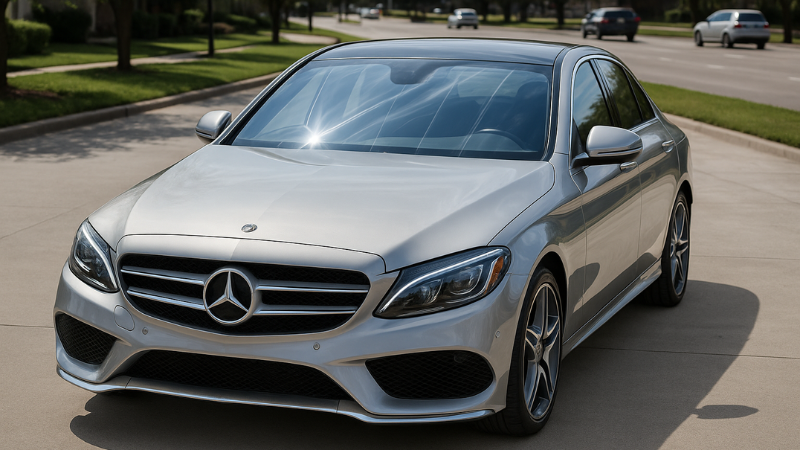
Benefits of Windshield Protection Film
A car’s windshield does its job with or without an additional protective film, which may make you wonder: Why add a windshield protection film at all? Well, it’s not about what your windshield can do, but about what benefits you get by safeguarding your windshield with a protection coating.
Throughout the lifespan of a windshield protection film, you and your car stay secure from road hazards.
Here’s the breakdown of the benefits your car’s windshield can use to perform better.

Impact Protection
On the road, windshields get exposed to debris, gravel, hail, rain, or whatnot, making them one of the most vulnerable components of vehicles. A windshield film serves as the first barrier of interaction against these aforementioned hazards and reduces their sudden impact.
By minimizing the direct stress, the protection film guards your windshield from chipping, pitting, cracking, sandblasting damage, and fractures.
Hydrophobic Coating
Modern hydrophobic coatings use fluoropolymer-based nanolayers that repel both water and oil. These coatings create a contact angle above 110°, meaning raindrops bead up and roll off instantly. This not only improves visibility but also extends wiper blade life by up to 25%.
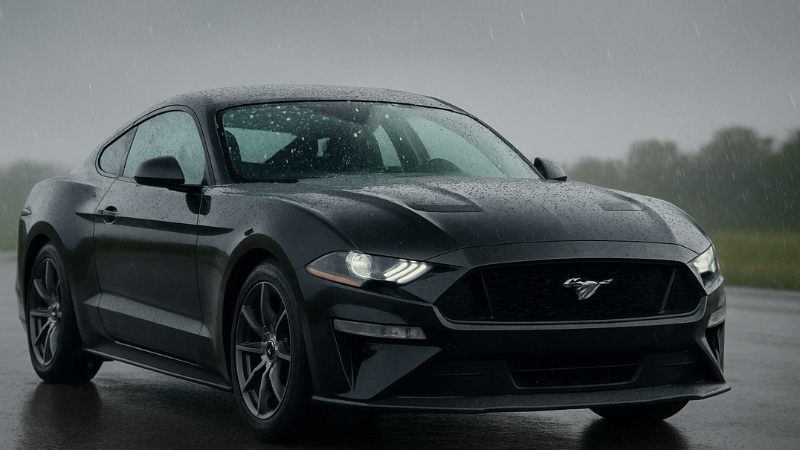
Harmful UV Rays Filtration
The sun emits a broad spectrum of electromagnetic radiation, with some wavelengths falling in the UV and gamma regions, while others fall in the IR region. A windshield protection layer filters out 99.9% of the harmful UV rays and only lets the particular light rays to transmit through the window.
This filtration protects you from the harms of UV and gamma rays as well as preserves your vehicle’s upholstery from fading.

Scratch Resistant
Windshield film serves as a frontline defense for your windshield glass and keeps it protected from the scratches caused by road debris, wiper blades, rock chipping, and other road hazards.
Thus, your window remains in pristine condition for a longer time, and the odds of needing replacement are also significantly minimized.

Glare Reduction
By transmitting only a particular set of visible light radiations, windshield protection coating minimizes the optical glare while driving on hazy days or at night, so it is highly suitable for commercial fleet vehicles to reduce heat and glare.
These car protection films are invisible and enhance the visual clarity, something that a bare windshield cannot provide, as it cannot block the unwanted light from transmitting.
Glass Shatter Protection
In case of a collision, windshield protection film holds the shattered glass together so that the hazardous glass shards do not go flying around. By keeping windshields intact, the risk of passenger injury diminishes, and the integrity of the vehicle’s interior also remains safeguarded.
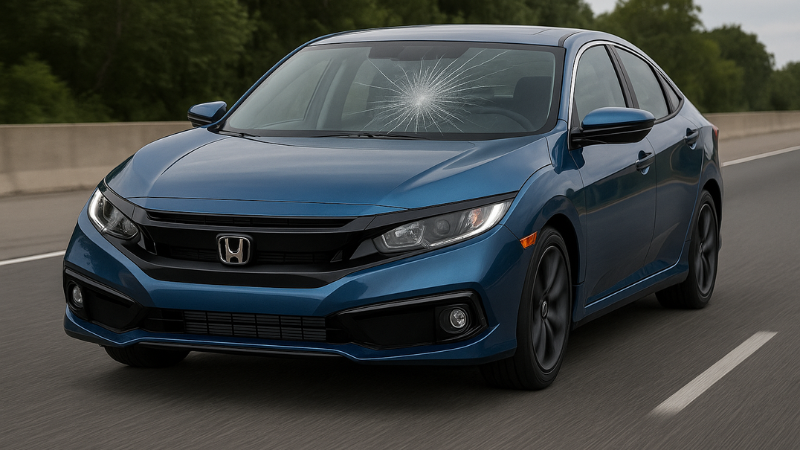
Factors for Choosing Windshield Protection Film
Choosing a protection film for your windshield is not just a matter of your vehicle’s safety but also your own. A below-par film can put your life at risk and do more harm than any good. Therefore, the selection must be done carefully to gain the complete benefits of window protection films.
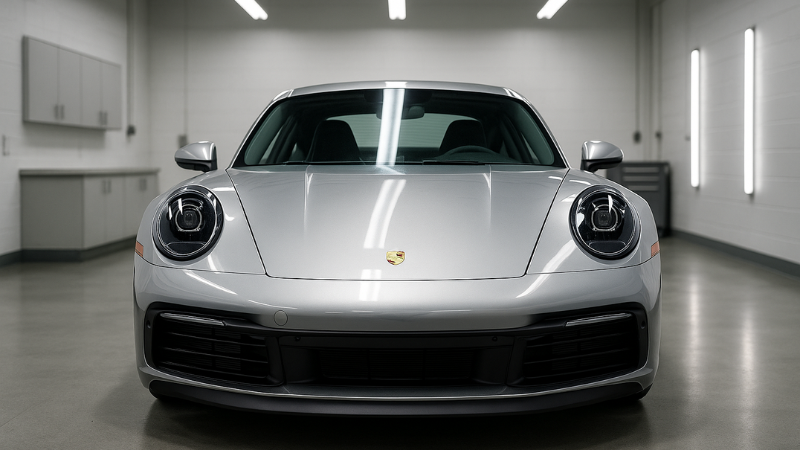
Film Thickness: The thickness of the film decides the extent of abrasions and scratches a film can bear while maintaining its integrity. The thicker the film is, the denser the barrier it will offer for absorption of impact forces applied by road debris, dirt, rock chips, gravel, and other elements.
Film Material: Different film manufacturers design films with their own proprietary blend of components, such as ceramic film and carbon film, resulting in variation in final film composition.
Opt for films with TPU-based multilayer construction, as TPU provides superior elasticity and self-healing compared to PET. Studies show TPU films can recover from light scratches within 20–60 seconds under mild heat (about 40°C), significantly improving film longevity.

Topcoat Enhancements: Car windshield films are made with variable topcoats, from hardcoats to self-healing and ceramic topcoats.
Films topped with hardcoats are better suited for vehicles that have to be driven on gravel-heavy zones, while seal-healing topcoats are better for mildly harsh environments.
Warranty: Choose a windshield protection film that comes with a warranty against peeling, bubbling, cracking, and yellowing so that you do not become the victim of frequent, costly replacements. And you can also learn how to remove the tint by yourself to save more cost.

Types of Windshield Protection Film
Windshield films are available in different types; however, all of them serve the same purpose, with plus or minus some unique features. Here are the types of optically clear windshield films available in the market that can seamlessly integrate with your car’s windshield;
Scratch Resistant Protection Films
These windshield films incorporate the polymers of polyethylene terephthalate to add the feature of shock-absorbance. These films are finished off with the layering of scratch-resistant coating, named hardcoat, which is extremely resistant to scratches due to its hard nature.
Thus, PET (polyethylene terephthalate) based windshield protection films do not wear out quickly and have a longer lifespan.
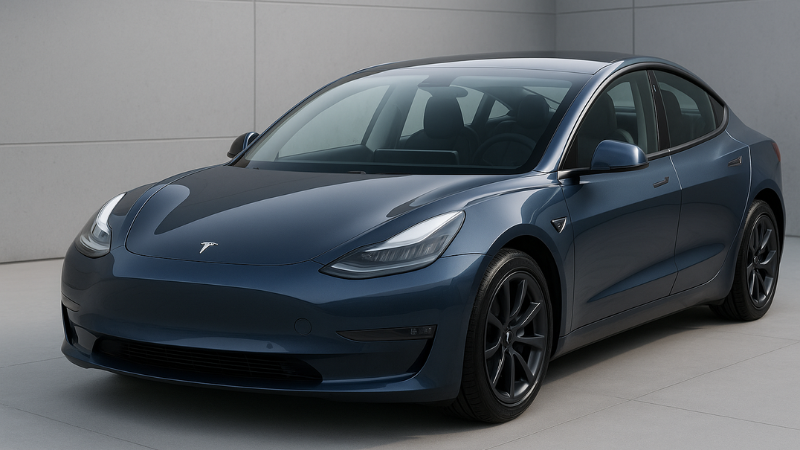
Self-Healing Protection Films
Self-healing windshield protection films, also called soft films, are engineered with polymerized thermoplastic polyurethane, which provides the self-healing properties. When a scratch or chip happens on the surface, the molecules of the polymer rearrange themselves to smooth out the surface.
However, these films are not as durable as PET-based films and tend to wear out earlier than other films.
70% Window Tint Films
Window tinted films can also be utilized for windshield protection, as these films can also filter harmful UV rays and keep the windshield intact in case of accidents. However, it must be noted that tinted window films have a lower VLT due to added shading, which compromises road visibility.
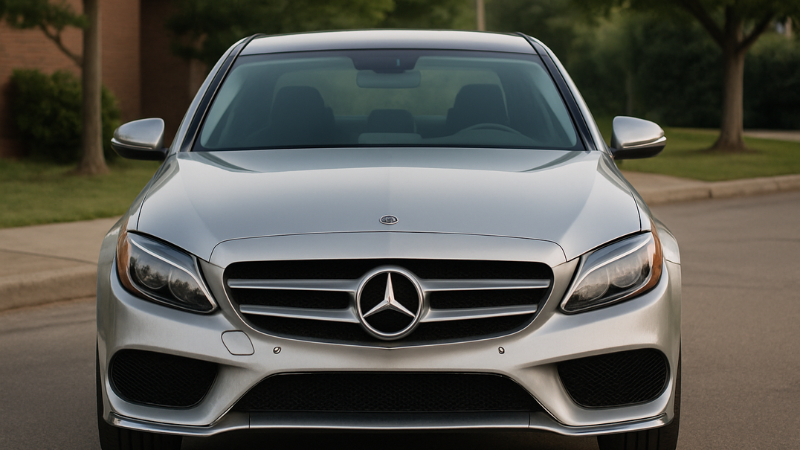
Therefore, while tinted films do provide a degree of privacy to the occupants, you cannot choose 30% or 50%, which are lower than 70% tint, for your own safety as well as law compliance.
Optically Clear Paint Protection Films
If you only need a film for enhanced safety of your windshield and not for other features, a transparent paint protection film (PPF) may also do the job. These are thermoplastic polyurethane primarily made to be laminated over the paint, but can be improvised to be used as windshield films in easy DIY projects.
Make Your Windshield Film Last Longer: Maintenance & Upkeep
Windshield protection film does protect your vehicle from debris, rocks, chips, and surface abrasions, but it isn’t invincible itself as it gradually loses its efficacy without good care. Here are the maintenance tips you must know to clean the windshield film.
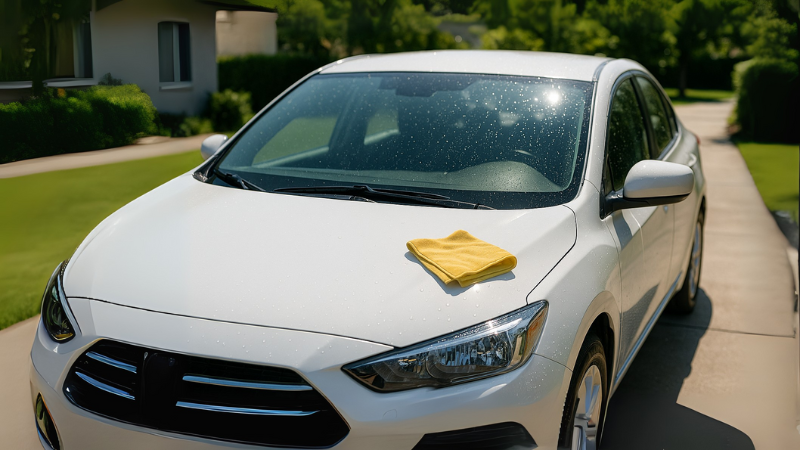
- Mild Washing: The longevity of window film lies in cleaning it regularly to remove daily grime and environmental buildup after each drive, so that there is no long-term accumulation. Use mild cleaning solutions that are free of ammonia for effective removal of the gunk.
- Gentle Cleaning Equipment: Abrasive brushes or scrubbing pads deteriorate the windshield protection film by causing tears in the protective topcoat. Therefore, wash your car with a soft microfiber cloth with gentle hands.
- Regular Inspection: Keep regular inspection of the film in practice to keep an eye for the signs of wear, such as chips, cracks, or pitting, and replace it as needed to maintain optimal protection.
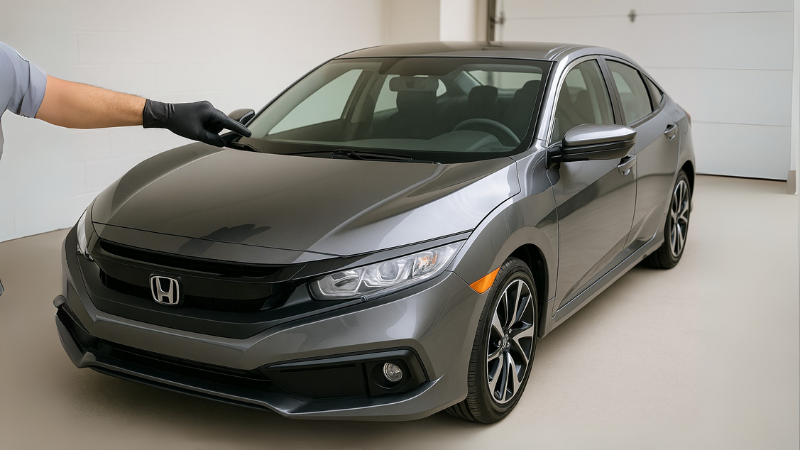
- Avoid High-Pressure Washers: High-pressure washers may seem like an easy way to clean off all the dirt at once. However, the high pressure interferes with the adhesion of the film and can cause lifting of the edges and bubbling of the film, which requires additional repair.
Manufacturer Warranty and Support
A manufacturer’s warranty is not just a paper with expiration dates, but a reassurance that your investment is going to be worth every penny. It offers a guaranteed lifespan for the film and eliminates the uncertainty surrounding potential early deterioration and wearing.
The manufacturer’s warranty isn’t only a bonus for the customers but also a seal of confidence for the automotive film dealers who buy in bulk and want to provide their customers with just the best.
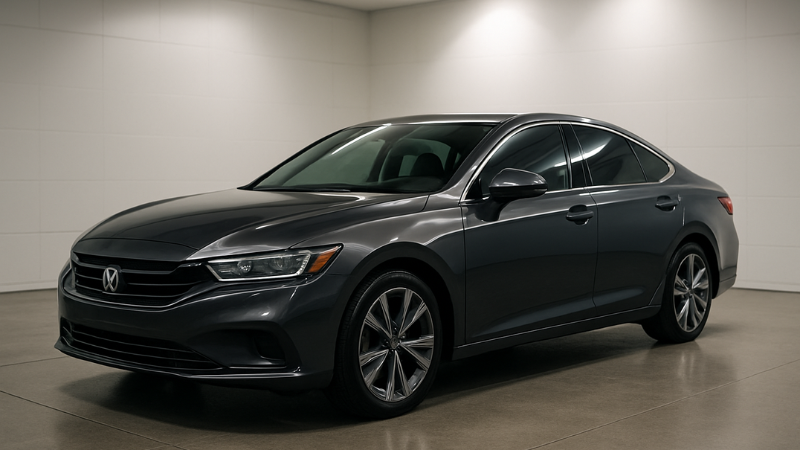
Reputable Brands
Reputable window film manufacturers, like CarLike’s Film, offer automotive film dealers specially curated warranties and support so that they can further provide value to their customers. CarLike Film will also provide you with technical guidance for a smooth first-time install so that your buyers turn into loyal customers.
Comprehensive Warranties
Look for manufacturers that offer comprehensive warranties that provide coverage for defects, damage, and installation issues. With these warranties, you will be able to assure your customer and help them build trust in you.
Is Windshield Protection Film Worth It?
Whether someone finds the windshield protection film worth it or not is a subjective matter; however, no one has ever regretted a windshield protected from road hazards. Here’s how a windshield protection film is worth it differently for different consumers;
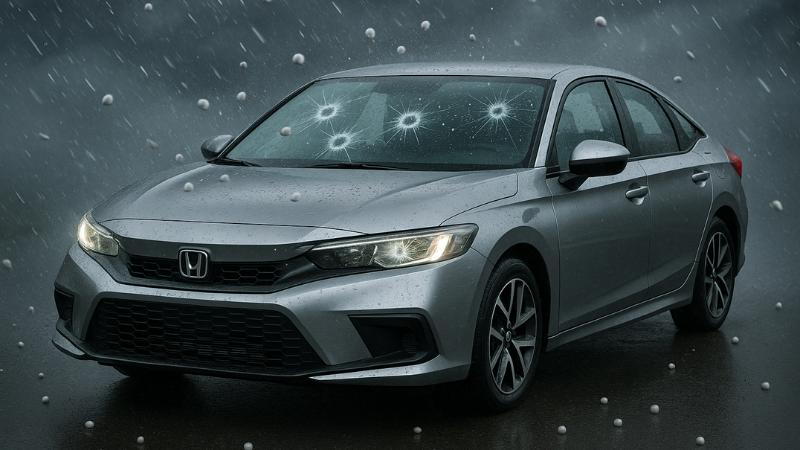
- Luxury Vehicles: Windshield protection coating blocks the harmful UV rays from passing through the window and thus protects the upholstery of luxury vehicles and sports cars from fading.
- Drivers of Gravel-Heavy Zones: Windshield protection film acts like a charm for drivers who have to drive through gravel-heavy zones every day.
- Owners of Expensive Windshields: Whether expensive or average, no windshield is immune to unforeseen accidents, but replacing an expensive windshield is heavy on the pocket. Therefore, it is totally worth it to install a protection film so that your high-end windshields remain protected from rock chips and road debris.
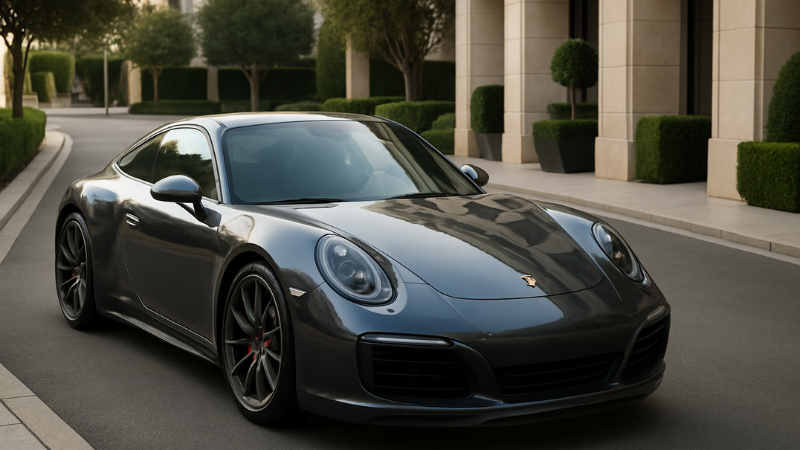
- Daily Commuters: By filtering the wavelengths of high energy, windshield films help regulate interior cabin temperature and facilitate a comfortable drive for passengers.
Can You Use PPF on a Windshield Legally and Safely?
Whether you use a specialized windshield paint protection film or a PPF, the purpose of laminating the windshield with a film is to protect it. However, PPF needs to be optically clear and distortion-free to be considered legal and safe for using on a windshield.
Using a paint protection film that is tinted too dark can not only place you in direct violation of legal tint regulations but can also compromise your road safety. Check with your local regulations and windshield visibility laws to find out the legal tint percentage in your area.
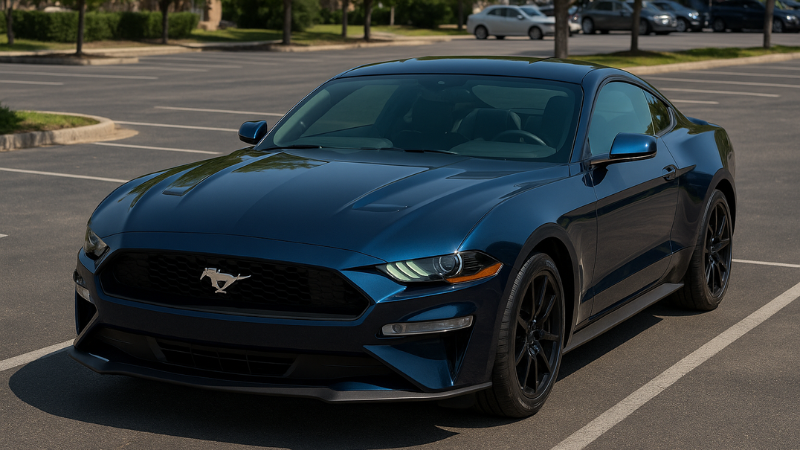
FAQS
Q1: Is ceramic windshield protection film as effective as others?
Yes, ceramic windshield protection films are highly effective as they are manufactured with specialized nanotechnology to incorporate functional nanoparticles. These films are durable as well as selectively filter out the light radiation to provide enhanced visibility.
Q2: Is the bulk purchase of windshield scratch protection film cost-effective?
Yes, if you partner with reliable manufacturers like CarLike, you can enjoy valuable discounts on the bulk purchase of automotive films. By sourcing inventory at wholesale prices, you free up capital that can be reinvested in your business.
Q3: What is the minimum order quantity (MOQ) for window tint films?
Our standard MOQ is 10 rolls, but we are flexible and can accommodate smaller orders to help new customers evaluate our products.
Conclusion
Road hazards strike without warning, so don’t leave your safety to chance! Arm your car with invisible armor: a vinyl wrap shields your paint from scratches and debris, while windshield protection film acts as a force field against cracks and impacts. Together, they create an all-around defense system, keeping you and your car safer on every journey.
Gain Profit on Bulk Windshield Film Purchases with CarLike
CarLike, the leading manufacturer of automotive films in China, offers the best-performing windshield protection film of 2025. Our protective films are engineered to have exceptional qualities, which you can pitch to your customers and gain an edge over your competitors!
With our extensive product range, expand your service portfolio and provide your customers with the best. Contact us to receive a free quotation now!
